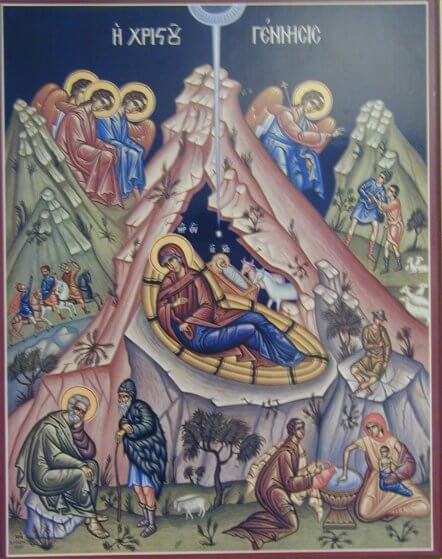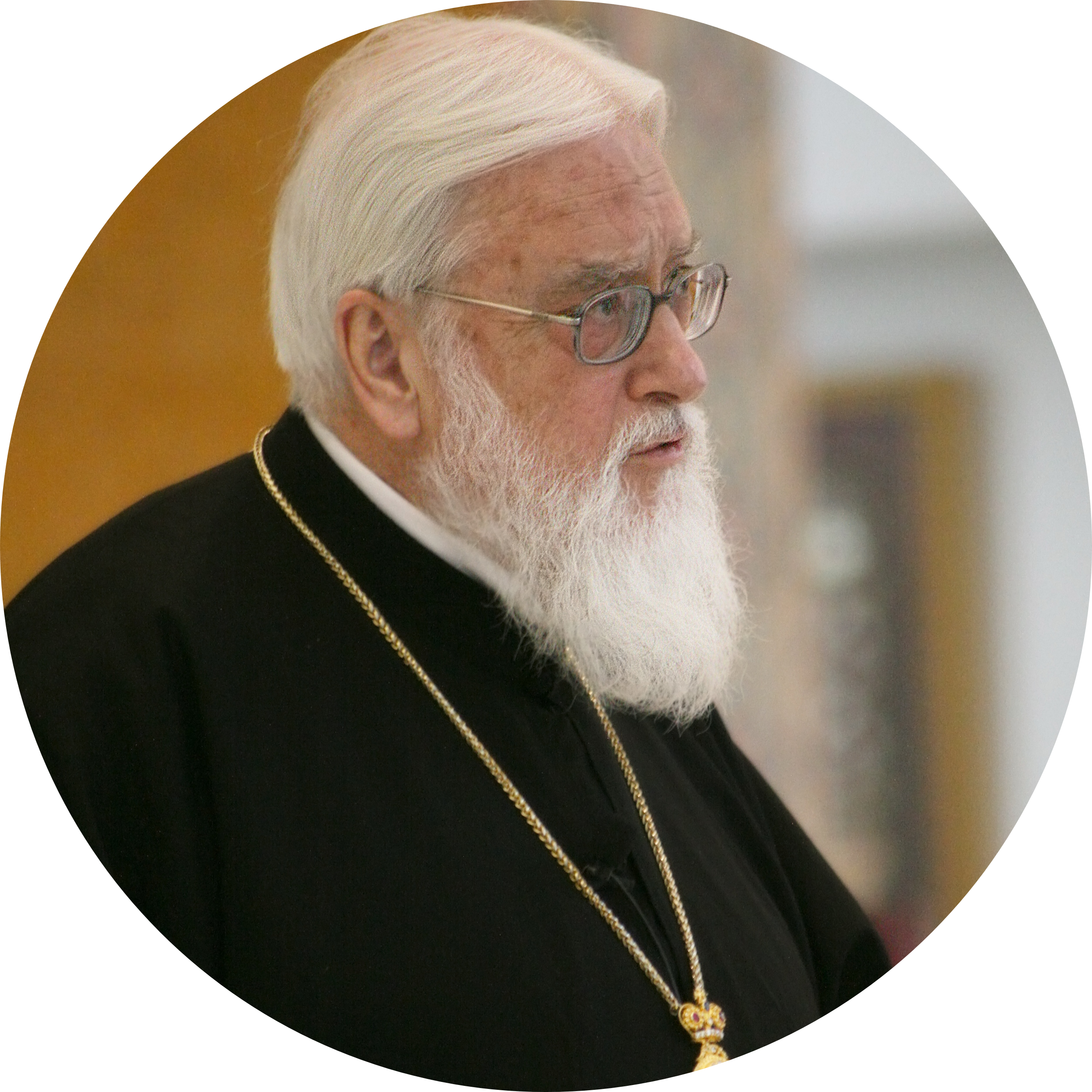The Victory of Suffering Love
by Metropolitan Kallistos (Ware) of Diokleia
an excerpt from his book, The Orthodox Way
The incarnation, the birth of Christ in Bethlehem celebrated at Christmas, is already an act of salvation. The Word of God, in taking human flesh and taking up our broken humanity into Himself, restores us. Christ saves us by experiencing from within, as one of us, all that we suffer both outwardly and inwardly through living in a sinful world. But in a fallen and sinful world, His love had to reach out yet further. Because of the tragic presence of sin and evil, the work of our restoration by Christ was to prove infinitely more costly. A sacrificial act of healing was required, a sacrifice such as only a suffering and crucified God could offer.
 The incarnation is an act of identification and sharing: God saves us by identifying Himself with us, by knowing our human experience from the inside. The Cross signifies, in the most stark and uncompromising manner, that this act of sharing is carried to its utmost limits. Jesus Christ, our companion, shares not only in the fullness of human life but also in the fullness of human death. “Surely he has borne our grief and carried our sorrows” (Isaiah 53:4) – all our grief, all our sorrows. Such is the message of the Cross to each one of us. However far I have to travel through the valley of the shadow of death, I am never alone. I have a companion. And this companion is not only a man as I am, but also true God from true God. At the moment of Christ’s deepest humiliation on the Cross, looking upon Christ crucified, I see not only a suffering man, but suffering God.
The incarnation is an act of identification and sharing: God saves us by identifying Himself with us, by knowing our human experience from the inside. The Cross signifies, in the most stark and uncompromising manner, that this act of sharing is carried to its utmost limits. Jesus Christ, our companion, shares not only in the fullness of human life but also in the fullness of human death. “Surely he has borne our grief and carried our sorrows” (Isaiah 53:4) – all our grief, all our sorrows. Such is the message of the Cross to each one of us. However far I have to travel through the valley of the shadow of death, I am never alone. I have a companion. And this companion is not only a man as I am, but also true God from true God. At the moment of Christ’s deepest humiliation on the Cross, looking upon Christ crucified, I see not only a suffering man, but suffering God.
Christ’s death upon the Cross is not a failure which was somehow put right afterwards by His resurrection. In itself, the death upon the Cross is a victory. The victory of what? There can be only one answer: the victory of suffering love. “Love is as strong as death….many waters cannot quench love” (Song of Songs 8:6-7). The Cross shows us a love that is as strong as death, a love that is even stronger. And so Christ’s death upon the Cross is truly, as the Liturgy of St. Basil describes it, a “life-creating death.”
The crucifixion is itself a victory! But on great and holy Friday, the victory is hidden, whereas on Easter morning it is made manifest. Christ rises from the dead and by His rising delivers us from anxiety and terror: the victory of the Cross is confirmed, love is shown openly to be stronger than hatred and evil and life to be stronger than death. God Himself has died and risen from the dead and so there is no more death: even death has been filled with God. Because Christ is risen, we need no longer be afraid of any dark or evil force in the universe. As we proclaim each year at the Paschal Resurrection service in the words St. John Chrysostom: “Let no one fear death, for the death of our Savior has set us free! Christ is risen and the angels rejoice!”



